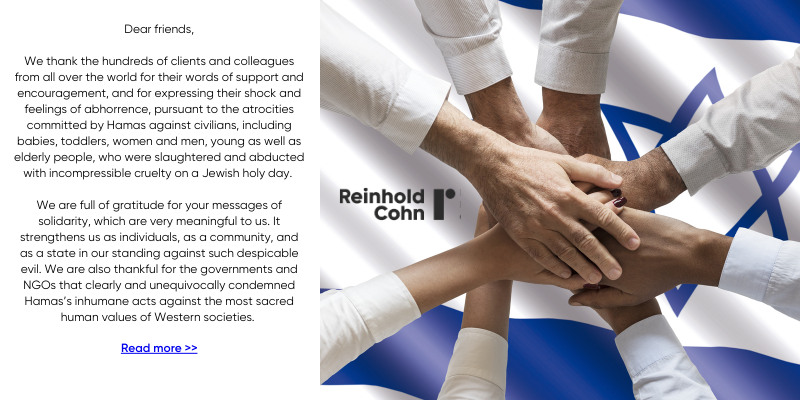The Use of a Copyrighted Work in a Political Context – an Allowed Fair Use or an Infringement of the Author’s Moral Right?


 What happens when a copyrighted work is used without the permission of its owner in order to express a political idea which the copyright owner finds offensive? Can “moral rights” form a bar to freedom of speech? Can a use of a work for political expression enjoy the defense of fair use?
What happens when a copyrighted work is used without the permission of its owner in order to express a political idea which the copyright owner finds offensive? Can “moral rights” form a bar to freedom of speech? Can a use of a work for political expression enjoy the defense of fair use?
Such questions were at the center of a Haifa District Court judgment in the matter of The Association for the Accountability of NGOs v. Futterman (2015), which dismissed an appeal from the Haifa Magistrate Court. NGO Monitor (Non-governmental Organizations Monitor) is an association whose stated aim is to monitor the reports and activities of humanitarian NGOs in the framework of the Arab–Israeli conflict, in order to reveal the agenda and funding resources of such NGOs. Mr. Israel Futterman is a journalist who regularly uploads to his YouTube account films created by him capturing political and social events. NGO Monitor has used parts of Mr. Futterman’s films without his permission, and re-edited them so as to form a derivative film subsequently uploaded onto YouTube.
Futterman brought a lawsuit against NGO Monitor claiming that not only had NGO Monitor used his work without permission, but its extensive editing of the original work injured his moral rights. Specifically, it was contended that NGO Monitor failed to acknowledge Futterman as the original creator in addition to the creator’s right that his work may not be distorted in an unreasonable manner. Notably, the presentation of Futterman as associated with the positions of NGO Monitor have damaged the objectivity of his video-clips and thereby tarnished his reputation.
The claim was brought before the Haifa Magistrate Court which ruled in favor of Futterman. The District Court upheld the judgment of the Magistrate Court holding that NGO Monitor’s use of Futterman’s videos caused an observer to cast doubt on the “objectivity” of Futterman’s work. The defense of fair use was found inapplicable under these circumstances and “freedom of expression” may not be used as a justification to harm the dignity of another.
In another judgment issued in October 2015, the Haifa Magistrate Court ruled in favor of a photographer Chaim Schwarzenberg who sued a non-profit organization named Hanenu (SCC 40339-11-14) that offers legal representation for soldiers and civilians accused of criminal offences committed against the backdrop of the Arab-Israeli conflict. The photographer alleged that Hanenu misused his photograph showing an IDF soldier with his arms spread out in front of a Palestinian photographer. Schwarzenberg posted the photograph on his Facebook page with a caption explaining that the soldier was trying to show that he was using no violence.
The Hanenu organization used the same photograph on its Facebook page and on its website, giving credit in fact to the photographer; however, Hanenu placed an article alongside the picture alleging that IDF soldiers had been placed in custody due to an unjustified complaint made by an East Jerusalem Arab who claimed the soldiers had attacked him. The court held that although credit had indeed been given to the photographer, and although no change had been made to the photograph itself, it is nonetheless clear that the photograph was placed out of its original context. That is, the photographer originally made use of the picture in order to show that the soldier was demonstrating a message of non-violence, whereas Hanenu made use of the same picture in order to present the soldier in custody as a victim. The placing of the photograph out of context without permission amounted to copyright infringement and breach of the photographer’s moral right, as it was held that the author of a work has the right that the context of his work not be distorted.
The decision reached by the Haifa Magistrate Court seems to be in line with previous case law. Thus, in Sharir v. Meretz (an Israeli left-wing political party), it was held that the use of a photograph for a political campaign of a party infringed the photographer’s moral rights, as it leads the public to conclude that the photographer endorsed the political statements of such party, and that such presentation may have tarnished the photographer’s reputation. Similarly, in the case of Bielsky v. the Kach Movement, it was held that the unauthorized inclusion of excerpts from newspaper articles in proclamations of the Kach Movement (an Israeli extreme right-wing movement) harmed the articles’ value since it created an appearance of endorsement of the political movement by the writer.
The tension between a creator’s right in a work and the use of such work in a political context that is different from the original context touches upon a very sensitive nerve due to its implications on the freedom of expression, a cornerstone of a democratic society. One ought not to forget however that copyright law is intended, inter alia, to promote freedom of expression, and acts that are “reasonable under the circumstances”, may be excused from infringement when considering, among other things, the nature of the work, the nature of the act, and what is considered appropriate in the industry.
This article is provided for general information only. It is not intended as legal advice or opinion and cannot be relied upon as such. Advice on specific matters may be provided by our group’s attorneys.
